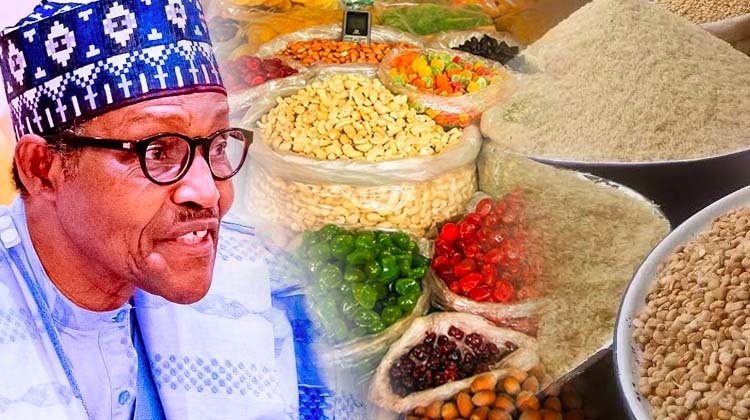Minister of Agriculture and Rural Development, Mahmood Abubakar, has said increase in the prices of food items in the country is caused by the outbreak of COVID-19 pandemic, insecurity and the Russia- Ukraine, among several other factors.
The minister, who spoke recently at the State House, Abuja, however, promised that the Federal Government was making efforts to address the rising prices of like beans, rice, garri, bread and other food items, which have increased in the past few years by between 200 and 400 per cent.
Abubakar also said the continued increase in the prices of food items was not peculiar to Nigeria, but has remained a major challenge confronting other countries of the world.
The minister lamented that the hike in the prices of food stuff and other essential items was worsened by the outbreak of the COVID-19 pandemic and the Russia-Ukraine war, adding: “When COVID-19 came, it affected a lot of things including food production. Its effect is what we are still facing and this will continue for some time before things will finally stabilize.”
Read Also: Renewed sense of urgency on tobacco control funding
Abubakar, who noted that he believes that the price of rice has dropped a little bit, but we are still working on it, said the whole world is currently just getting out of the pandemic, sadly the Russia-Ukraine war broke out. The world is now battling the consequences of the war in Ukraine.
“Things will stabilise, because the Ministry of Agriculture is working hard to address the problem and we are not relenting to ensure that the prices will reduce faster,” he said.
Speaking on how insecurity has affected good prices across the country, he said attacks by herders and terrorists have denied some farmers the opportunity to go to their farms, especially in the North West and North Central regions of the country.
Abubakar said despite the security situation, food production has not stopped to any significant level
On how to halt the slide, he said: “This is one of the reasons, why the ministry has put up an arrangement for security agents known as agro-rangers, who are providing some level of security, so that the farmers will be able to access their farmers.
“Truly, if they cannot freely access their farms across the country, a drop in production should be expected, but right now, we are doing everything possible to ensure that production is maintained through the provision of security. Our plan to end hunger is still on track as we are determined to end hunger in the country,” he said.
Also, Director of Fisheries and Aquaculture in the Ministry of Agriculture, Samson Umoh, who spoke on fish importation in Nigeria, said there were two reasons why Nigeria still allows fish importation.
“The first reason why fish is still being imported into Nigeria is that local production cannot meet demand, while the second is that some species of fish are not locally sourced.
“Presently, the total fish demand for the country is about 3.6 million metric tons, based on the population of Nigeria, while the total production is about 1.2 million metric tons. The gap must be filled up and therefore, we are engaging the youths, women and all to improve fish production.
“Apart from Federal Government’s intervention, some species are not farmed or found in the Nigerian waters, like the mackerel and the stock fish, among others. Therefore, we have to import because they are not available in the country,” he explained.
Umoh said President Muhammadu Buhari’s commitment to agriculture has seen the sector contributing a lot to the country’s Gross Domestic Product (GDP) in the wake of the fall of crude oil price in the international market, insisting that in spite of the harsh operating environment, manufacturers still have confidence in the nation’s economy.





